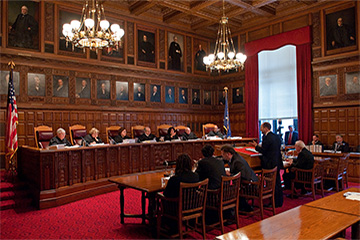About SR Holguin, PC
SR Holguin, PC is a full service union-side labor and employment law firm. Together, the attorneys at SR Holguin, PC have nearly four decades of experience representing private and public sector unions, and multi-employer trust funds. SR Holguin, PC and its team of attorneys, all with strong connections and the utmost dedication to the labor movement, are passionate about providing full-service legal representation to unions.
SR Holguin, PC was founded by Steven Holguin who began his career in the early 1980s and is a highly accomplished, awarded, and experienced attorney. Seeing the need for a law firm dedicated to adapting to future needs of unions and tailoring representation to ensure their long-term success, SR Holguin, PC was born.
Steven and the attorneys at SR Holguin, PC operate by the motto “equality for all workers is our goal – every day.”

Labor Law
- Provide Unions with the Guidance needed to navigate vast, complex, and ever-changing federal, state, and local labor laws, regulations, and ordnances.
- Labor Arbitration representation, advocacy, and training.
- Aggressive and effective Contract Negotiations representation, guidance, and training.
- Labor Law Training of Union officers and stewards.

Employment Law
- Work with Unions to obtain, maintain, and increase wage and job security for their members.
- Unmatched commitment to prevent unjust and unscrupulous employers from taking unlawful actions against Unions and their members.
- Decades of civil rights and discrimination law expertise.

Photo credit: Flickr
Aggressive Litigation
- Extensive record of aggressive and effective litigation expertise and success.
- Decades of expertise in federal and state court labor and employment, antitrust, class action, ERISA, RICO, COBRA, and CEQA cases.
- Expertise in practicing law before State of California courts, United States district courts, United States Courts of Appeals, and administrative agencies.

Government and Public Affairs
- Advocacy in proposed federal, state, and local statutes, regulations, and ordinances.
- Draft, Amend, and Monitor, proposed federal, state, and local statutes, regulations, and ordinances.
- Craft Persuasive Messaging to support clients’ positions.
- Guide Political Action Committees (PACs) regarding campaign finance law and all aspects of administration.
















